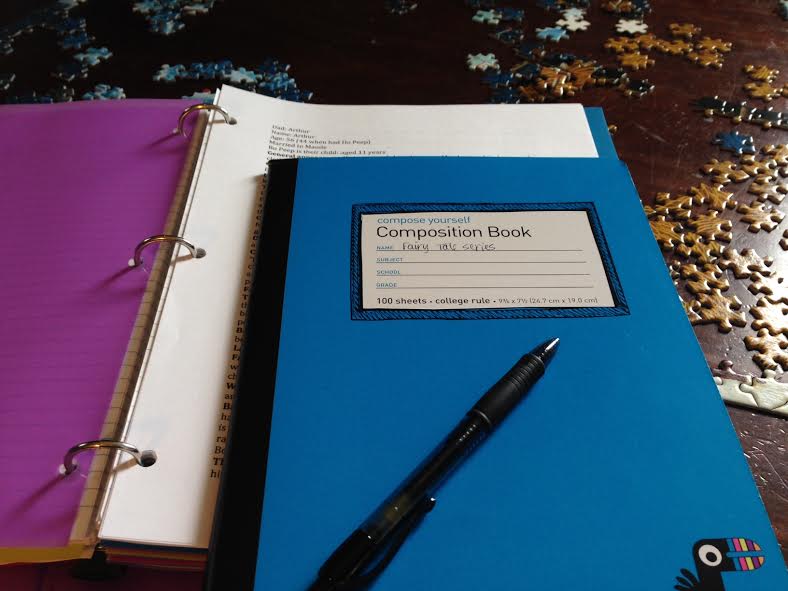But I just don’t have the time.
But I just don’t know what to do.
But I’m just not a writer.
I hear a whole lot of buts from people who don’t think they have what it takes to be a writer—whether it’s the time, the ideas or the talent.
So many writers have grand plans for stories they want to write or projects they’d like to someday start or the career they’d like to pursue instead of the one they’re stuck in right now.
Those excuses can seem like a period at the end of the sentence, but they’re really only parentheticals.
Writer parents are working with an incredible amount of restraint—time and location and ability to think straight for any extended period of time.
In 2013, Forbes Magazine published some data researchers found when conducting a study of “award-winning work from 1.7 million people.” They found that “people who create new value on the job are often inspired by their constraints.”
What this means for us: Constraints can be beneficial.
There is a catch here, though. (Of course there is.)
The catch lies in the way we think about our constraints: not as “barriers to your ability to innovate, but instead as a puzzle that holds the opportunity for creativity and Great Work.”
So everything in our lives becomes a puzzle. The lack of time, the lack of resources, the lack of babysitting. It’s all a puzzle, waiting to be figured out, not a limiting permanent marker line through our dreams.
But I just don’t have the time.
Maybe I can find some.
And then look at all the spaces, where time may be waiting for you to pick up a pen and a notebook and just jot down notes or whole essays or 200 words or 1,500 words.
But I just don’t have the resources.
Maybe I can figure out how to get some.
But I just don’t know what to do.
Maybe I can figure it out if I had a little time to brainstorm.
But I’m just not a writer.
Maybe I could become one.
“Constraints give us a starting point and some building blocks to work with—a problem to solve, an innovative twist to be revealed, or a person to please,” says David Sturt, author of Great Work: How to Make a Difference People Love. “And it doesn’t matter how tightly constrained we feel. The world is filled with amazing possibilities from limited resources and elements.”
Consider colors, he said. Every single variation of color comes from only three: red, yellow and blue. Every song starts with the same twelve notes on the chromatic scale. Everything on the planet is made from only 118 known chemical elements.
Constraints are a “starting point for seemingly endless creativity and possibility,” Sturt said.
So when it comes to writing, start with the constraints. Start with the limited amount of time. Start with the limited ideas. Start with the limited expertise, and then produce your masterpiece. Start a new project. Do the work.
We have lots of excuses for not chasing our dreams. And some of those excuses are really legitimate, because of course the kids need to be fed and put down to bed, and of course they get sick and of course living with children makes life unpredictable and wild, but those constraints can become our greatest catalysts, if we’ll let them.
Constraints are hidden in our buts. We can turn those buts around. We can make them work for us. We can make them help us create the most creative work yet.
Here are some things we can do:
1. Write down your buts. Be honest. Write down everything that’s keeping you from doing what you really want to do—whether it’s starting a blog or launching an online magazine or working on a new project. And then turn your buts into opportunities.
(But I can’t write. But I can learn to.
But someone else is already doing it. But I can add my own unique contribution.
But I’m not prepared for the risk. But I can prepare myself as well as I possibly can.)
2. When a new but comes calling, see it as an opportunity, not as a limit. Constraints can be difficult to work around, but they don’t have to dictate what we do and what we don’t do. We can brave through them.
3. Keep a log of what you have accomplished, especially when the constraints were still in place. This can be valuable. At the end of last year, I felt like I hadn’t really accomplished all that much. And then I realized, after looking back at my work log, that I had accomplished far more than I remembered. Memory can be faulty, so it’s good to have proof.


